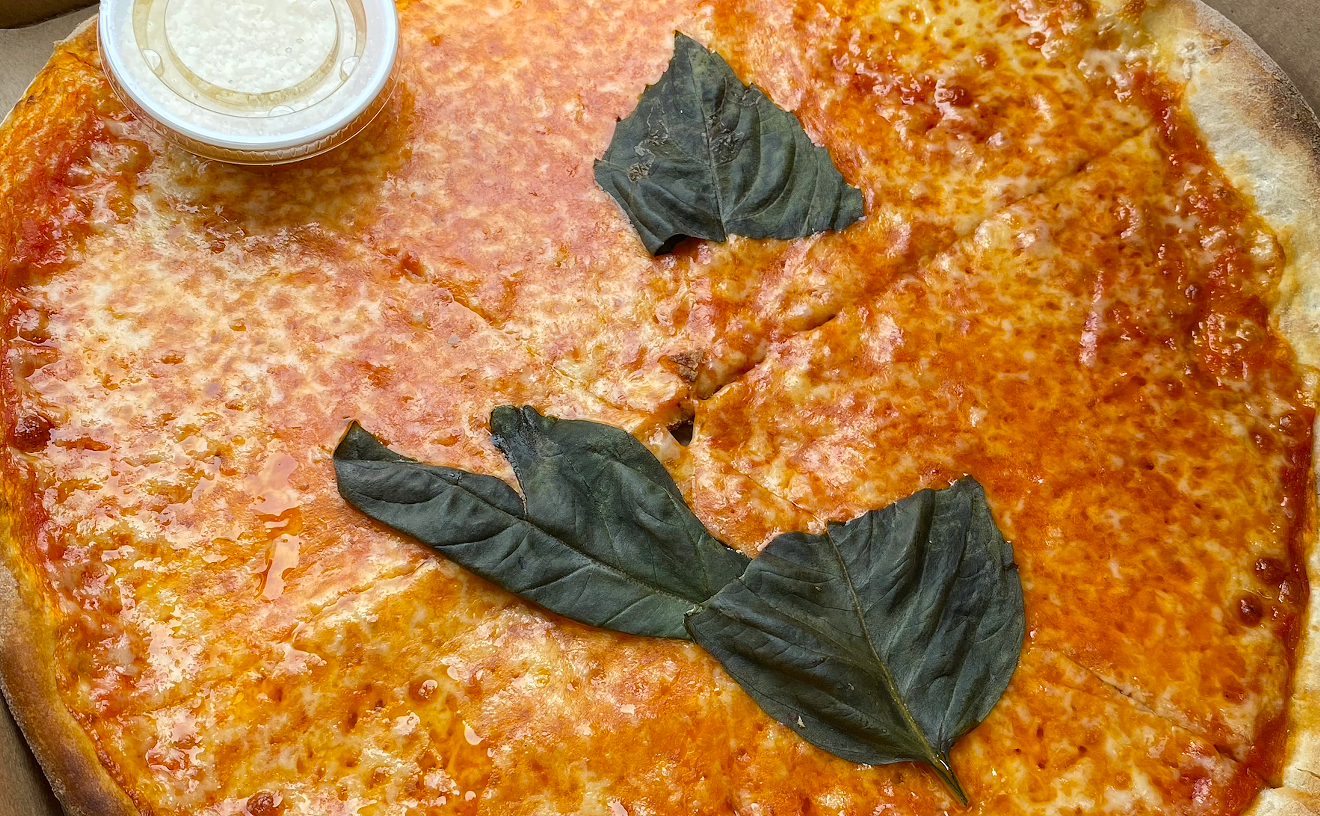Obama is speaking in Cairo, even quoting verses from the Qur'an, glad-handing Arab leaders, and no doubt settling down for intimate talks with King Abdullah II over a pot of Turkish coffee and some sticky pastries loaded with pistachios. And here's Hillary Clinton, touring the Middle East wearing a headscarf. I suggest we follow our leaders and go respectfully mingle with our nearest Muslim neighbors, who tend to congregate in a Plantation strip mall on Friday nights for a bit of kibbeh and foul medames.
Al-Salam Middle East Restaurant is just one element in a thriving commercial strip at Plantation Crossroads that caters to Middle Eastern immigrants. An adjacent grocery sells hookahs, honey, and hummus, along with many varieties of olives, finely ground coffee, nuts, packaged phyllo dough, and long shelves of spices. The coffee shop next door stays open late so the gents can socialize, serving the same function as a corner bar for this crowd of teetotalers. A travel agent arranges flights home, and the calligraphic signs on a handful of other businesses keep them impenetrable to the rest of us. On a Friday night, the whole area bustles with extended families, the ladies veiled or not, wearing long skirts and headscarfs fringed in gold, the younger girls in jeans and tank tops, a few Western couples thrown into the mix, perhaps an Indian woman in a sari with her Arab husband and a passel of kids. The distinctive, lilting music of the Middle East is piped through the sound system; pop videos and commercials beamed via satellite from Cairo play on the TVs mounted high on the restaurant walls — videos that get progressively more libidinous as pious mothers herd their broods home and the exhausted male staff kicks back with cups of coffee and sandwiches. Glowing red figures in a gilt-framed digital clock keep the date and time in Beirut and Tikrit and Cairo and Riyadh.
The bustle and energy of the place would be enough to draw you even if the food weren't so delicious. Al-Salam's menu is halal, meaning it's prepared according to the standards of Muslim law. The rules forbid pork, blood, and alcohol — or any carnivorous animal or bird of prey or any animal that has been mistreated or killed in an accident. It's similar to kosher food in the restrictions placed on the manner of slaughter. Generally the meats are of very good quality — the flavor and texture of the lamb and beef we ate at Al-Salam were excellent, and at these low prices (the dinner platters run from $9.99 to $13.99), you wonder how they manage it.
I've gotten to the point where I judge the quality of a restaurant by how many days I'm actively craving more of it. I'm still dreaming about my last dinner at Al-Salam, still wondering how they achieved the texture of that labneh, a very thick salted yogurt spread, sometimes described as a cheese, drizzled with olive oil and sprinkled with dried mint or other spices. It tastes like a cross between sour cream and crème fraîche, and it is absolutely delicious dabbed on everything from a chunk of beef sausage to a forkful of spiced rice to a triangle of the pita that comes in an enormous warm bag of bread with your appetizers. Al-Salam's labneh has a beautiful, silky, rich consistency. I suspect the cooks may be using cream instead of whole milk, or maybe half and half. At any rate, don't leave Al-Salam without an extra order of it boxed and tucked under your arm to eat at home.
The recognition comes, as you consume your meal at Al-Salam, that you're dining on precisely the same fare people ate in the Fourth Century. Like Chinese cuisine, this is a menu infused with a slightly melancholy magic, revered and holy. You think about the ancient ladies who hung their cloth-wrapped yogurt from the branches of olive trees to let it drain, later drizzling olive oil from those same trees over their finished cheese; the spices hand-ground in a mortar whose design hasn't changed since Muhammad led his acolytes to Medina. It's part of the pleasure in a plate of foul medames, the mashed brown fava beans mixed with lemon and a bit of jalapeño and parsley ($4.49), in that creamy labneh, in the spiced, fried ground-beef sausages called makanik ($12.99) or the slivers of marinated and grilled beef and lamb shawarma ($10.95) served over rice infused with allspice and cardamom. And you probably won't miss the beer and wine much as you sip from yogurt drinks, lemonade, or mango and guava juices.
The fasting, praying, abstinent Muslims may have a reputation for asceticism, but when it comes to food, they don't stint either on portion size or depth of flavor: There is such a welter of scents and sensations — sharpness of pepper and fragrance of cumin and clove. This is a cuisine meant to be inhaled as much as swallowed. We were fairly done in by the huge appetizers and could have easily split one of the entrées. Problem is, you don't want to miss anything, not the tabbouleh or the bakdonsiah (spiced sesame tahini paste with parsley and olive oil), not the grilled, marinated lamb chops or the whole grilled snapper drizzled with "special sauce," not the moussaka or the green beans or the stuffed grape leaves or stuffed peppers, and certainly not the rolled sandwiches you see young men wandering around with, stuffed with ground lamb and drizzled with piquant, thin yogurt sauce.
And no matter how much you've eaten, you can't possibly leave without a pot of divine Turkish coffee. Mark Twain once wrote witheringly of this brew: "[Turkish] coffee is black, thick, unsavory of smell, and execrable in taste. The bottom of the cup has a muddy sediment in it half an inch deep. This goes down your throat, and portions of it lodge by the way and produce a tickling aggravation that keeps you barking and coughing for an hour." Twain evidently needed a lesson from his Arab hosts. The long-handled coffee pot is designed to pour off the thick, cardamom-infused coffee and leave the very fine grounds; any that make it into your cup are best left sitting at the bottom. The brew is delicious with any of the phyllo-wrapped pastries from the cases by the cash register — each filled with some variation of chopped pistachios, walnuts, cashews, or sweet cheese or squares of semolina stuffed with dates and baked, then drizzled with honey and rosewater-scented syrups.
Now that we've got a president whose father was Muslim, it's time for us all to cultivate détente with our Islamic neighbors. You'd be hard-pressed to hold on to any enmity or misunderstanding over a plate of Al-Salam's baba ghannouj. When it comes to kebabs, we're all in this together.










